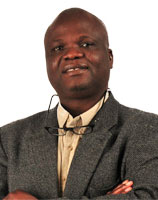Date
Cost
Free and open to the public
Location
Physical Science Building, Room 161
Description
Vacuum deposition of inorganic films is very expensive. Adapting this technique to grow more complex material films over large areas presents even higher technical and financial challenges. On the other hand, the traditional film growth from nano-materials involves a cumbersome sequence of operations: (a) nanoparticle growth; (b) nanoparticle ink, gel, or slurry formulation using organic solvent and additives; (c) inkjet printing, or spin coating, or other gel or slurry coating technique; (d) baking and sintering for solvent, dispersant, and gelling binding agent burn-out, as well as for particle recrystallization. Inevitable organic residues impair film quality, and make the films unsuitable for some applications.
I will describe my innovative approach to film deposition called “streaming process for electroless and electrochemical deposition” (SPEED), which combines a wet aqueous electrode-less system, with processes and precursor formulations that enable fast direct deposition of nanoparticle-based films on hydrophilic substrates. A wide range of substrates may be used: rigid or flexible, small or large, metallic or non-metallic. Primary reactants are water-soluble. SPEED is significantly more flexible and scalable than existing deposition methods. It allows the growth of single element, binary, to more than six-element materials and composites. I will also describe the novel energy devices that I have developed with my films.
Presenter

More information
Light refreshments will be served
Contact
Mari Pina NanoScience Technology Center 407-882-1515 Mari.Pina@ucf.edu